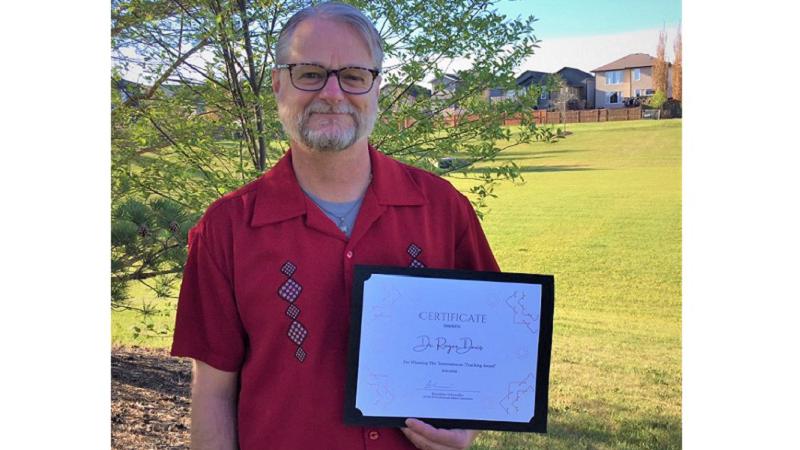
RDP prof earns innovation award for ‘zombie apocalypse’ course modification
Dr. Roger Davis, Head of English at Red Deer Polytechnic, is the brains behind a new ‘zombie apocalypse’ experience for students taking English 220.
An instructor at RDP since 2011, Davis’s outside the box approach recently earned him an Innovation in Teaching award from Alberta Colleges and Institutes Faculties Association. The honour is given to one instructor in the province annually.
Here’s the course’s premise: students wake up in class with a zombie apocalypse underway, and they must survive. Each student develops a character for themselves, with parameters for their gender, age, occupation and beliefs determined by a random game of chance. Then, they establish geographical location and political structure before embarking on their major project – a group task where they must establish infrastructure that will contribute significantly to society, according to RDP.
“The unique approach Dr. Davis has thoughtfully integrated into his English 220 course demonstrates interdisciplinary, applied learning that can resonate with students in powerful and memorable ways,” says Kylie Thomas, Vice President Academic and Provost.


